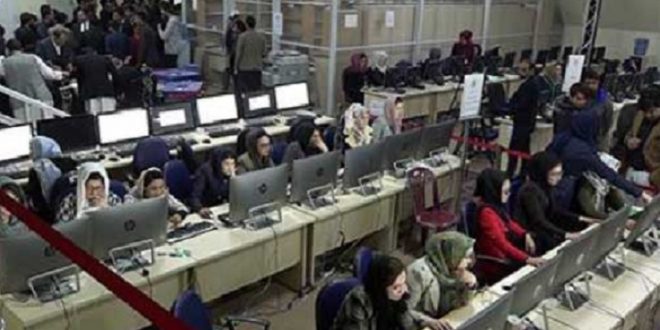With only a few days to go by before the Independent Election Commission (IEC) announces the preliminary results regarding who would be the next president of Afghanistan, the matter of transparency in election results has turned into a contentious issue and a serious conundrum. Recently, Rahmatullah Nabil, one of the presidential runners, have claimed that the incumbent government was attempting to authenticate the not-biometrically-verified votes with the help of the Supreme Court (SC) and accused it of fraud. He further added that the Council of Presidential Runners, supervisory bodies and other institutions had so far prevented the entry of up to one million fraudulent votes into the system. This comes as the presidential contenders have also warned of filing a complaint at the United Nations against, what they say, the monopolization of all activities by President Ghani and the current situation. However, this allegation of probable reference of non-biometric votes to the SC for legitimization has been rejected by well-placed sources at the apex court. The status quo of this constant meddling in IEC’s affairs from multiple quarters undermines the whole process of the election – whose expected results are the only hope for Afghanistan’s political future and prosperity.
The allegation – seemingly having no truth to it – against Ghani probably springs from the past experiences when the judiciary was engaged in technical and special issues of the election, as well as other matters, as it took political decisions – something in violation of the Constitution. Among many other instances of the SC helping the government executives – in some cases against the parliament – a case in point is the extension of presidential terms twice. In 2009, when Former President Hamid Karzai’s tenure was running out, the judiciary intervened in his favor and extended his term. It did the same for President Ghani this year by taking the controversial decision of prolonging his term – which should have lawfully ended in May – because the presidential polls were constantly rescheduled. This preference of executives to turn to the court in harsh times, as well as allying with it, is possibly because a president – based on the Constitution – introduces the nine members of the SC whom the parliament then grant a confidence vote to. Therefore, they expect something in return for appointing the justices. However, the SC is not a legislative body to modify the law in a bid to authenticate invalid votes. Moreover, it seems that the presidential runners took this preemptive action of propagating this claim to prevent such thing in advance – and to dissuade Ghani in case this idea had already crossed his mind, who might see a benefit in doing so to help him win the election.
Besides, the current claims and interference in the affairs of the IEC are pushing Afghanistan into a political quagmire. This is while the IEC has previously made it clear that non-biometric votes were invalid. The presidential runners and political elites should patiently wait for the results and don’t put excessive burdens on the body. Electoral watchdogs and foreign observers are currently monitoring and scrutinizing the tallying of votes and they are engaged in splitting the valid votes from the invalid and non-biometric ones. As much as the presidential candidates want to forestall this action of seeking SC’s assistance by Ghani, they shouldn’t prejudge the results. The IEC should be let alone and allowed to manage its affairs independently. The government should avoid doing anything that flies in the face of the Constitution – whether it’s interference in the electoral bodies’ activities or finding illegal ways to gain power for another term.
 Afghanistan Times
Afghanistan Times




